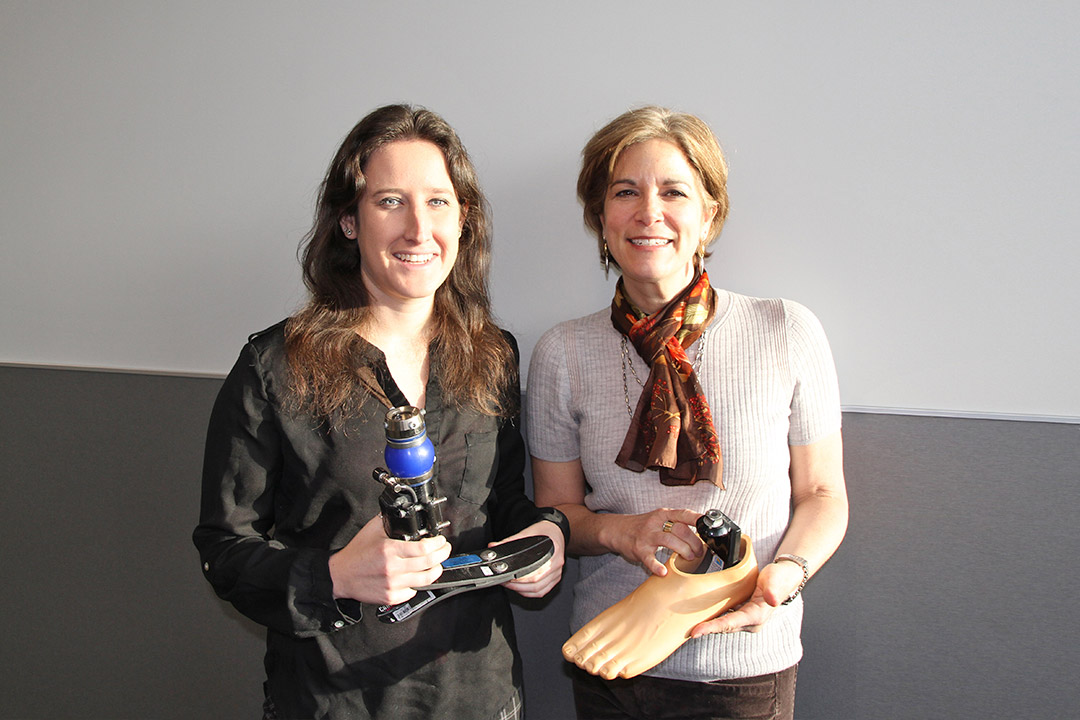
From Tennessee to Canada 150
When Kassondra (Soni) Collins began her PhD in neuroscience at the University of Tennessee Health Science Center (UTHSC), she had little idea that her academic path would lead to research in function after limb amputation, much less to becoming an international academic ambassador.
By Chris MorinThen again, it’s a journey that Collins readily admits is a surprising one. Her major has changed from law to science, with several turns in-between. After avoiding classes such as biology in high school, Collins said a cognitive neuroscience course taken during her undergrad days ultimately changed the trajectory of her career.
“We got to dissect a sheep’s brain and I was hooked,” she said. “I remember thinking that this was it for me. I wanted to jump headfirst into the medical field.”
Starting in criminal justice with a minor in chemistry and psychology before switching gears, Collins eventually began working on medical research in topics such as concussions and Parkinson’s disease, until a change in supervisors led her to phantom limb pain research. Under Audrey Zucker-Levin, then a professor at UTHSC, Collins had finally found her academic niche.
However, that all changed when Zucker-Levin announced her move to Canada—a situation that could have dealt a major setback to Collins’ own research.
“My whole project revolved around her work,” said Collins, now a health sciences graduate student in the College of Medicine at the University of Saskatchewan.
Rather than face the prospect of another academic upheaval, she jumped at the opportunity to finish her research at the U of S, a location where her work has since flourished. Since arriving in Saskatoon, the American-born Collins has been awarded a Canada 150 International Graduate Student Fellowship, an award that allows her to encourage other students to take advantage of study abroad experiences.
“There are a lot of opportunities that students may not know about, such as conferences or the advantages of experiencing other cultures and campuses,” said Collins.
Since Collins and Zucker-Levin have been reunited at the School of Physical Therapy, they have been working on a number of projects, including her dissertation, which compares the muscle activity used to move a phantom limb to the muscle activity used to control a prosthetic device. Collins believes there is a disconnect that contributes to the rejection of more than 30 per cent of upper-extremity prostheses.
“We think that if the same muscles used to control the phantom limb are targeted to control the prosthesis, there would be a higher acceptance rate,” she said. “We’ve also found that many of those who wear prosthetic limbs say they are heavy and difficult, and call them a burden rather than an asset.”
Zucker-Levin is dedicated to improving function and quality of life in all people affected by amputation, not just those who wear a prosthesis. She and Collins look forward to working with patients, family members and health-care providers to positively impact this population.
“We have been reaching out to health-care providers, patients and the community. Everyone has been receptive and welcoming,” said Zucker-Levin, a faculty member in the School of Physical Therapy. The two have since established Who Needs Twenty, a website dedicated to those affected by limb amputation. It’s part of a project that Collins said will provide social support and outreach. Rather than being reflective, she said the group aims for positivity by setting up opportunities for travel and social events.
“Many people with amputations that I’ve met have had difficulty adjusting and many of them want to know about getting back out and being active or learning new skills,” said Collins. “They want to live their lives, and they are looking for guidance.”
While it’s been a long road from her undergrad days in the U.S. to amputee research at the U of S, Collins said she looks forward to giving back to the community in Saskatchewan.
“I want to help as many people as possible.”

